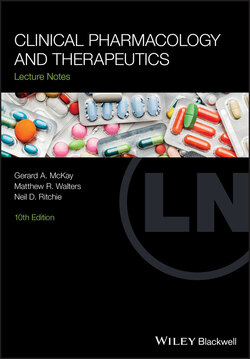Читать книгу Clinical Pharmacology and Therapeutics - Группа авторов - Страница 166
Clinical scenario
ОглавлениеA 74‐year‐old man with high blood pressure is admitted to hospital for a routine operation (transurethral resection of prostate). The admitting doctor writes up his drug chart for the three different blood pressure tablets he is normally prescribed. The day after his operation he is given the three drugs by the nurse doing the drug round. The patient then complains of dizziness on standing and is noted to have a low blood pressure with postural drop. Is there a problem with adherence?
Adherence is the degree to which a patient takes the treatment(s) prescribed for them as directed. The old term for this is compliance, although compliance has fallen out of use since it implies that the patient is being told what to do by their prescriber and may have a paternalistic overtone.
Adherence is important in reproducing the expected clinical effect of a drug. Clearly if the patient takes a medication infrequently or not at all, then this is likely to mean that they derive less benefit and is a common reason why ‘real world’ benefits of drugs may be less than seen in clinical trials, in which adherence is usually higher.
Many factors influence adherence. Good explanation and understanding on the part of the patient of why they are being prescribed a drug and a perception that the drug will be helpful is important. Similarly important are a convenient method of administration and an absence of significant side effects. A side effect that a patient may tolerate when taking a week‐long course of antibiotics may not be tolerated if the same adverse effect occurs during long‐term prescribing for a chronic health condition such as hypertension. The effect of tablet burden and multiple prescribing is often underestimated. There is strong evidence that adherence is reduced even when prescribing two rather than one tablet and this effect is even greater if patients are taking larger numbers of tablets or multiple daily dosing. Clearly such problems cannot always be avoided, but the impact of being asked to take several tablets several times per day should not be underestimated.
A number of methods can be useful to promote good adherence. A good therapeutic relationship between patient and prescriber is helpful and explanations should be clear and appropriate. It is useful to routinely ask patients about their adherence and such questions should be asked in a non‐confrontational way that does not imply disapproval. Many patients fear telling medical professionals that they forget to take prescribed medications. Dedicated counselling can be useful, particularly if adherence is particularly difficult or appropriate. Drug administration aids such as tablet boxes or packaged doses can be very useful, particularly for patients with complex drug regimes. Many patients find that setting an alarm or reminder on a smartphone can be very helpful.
